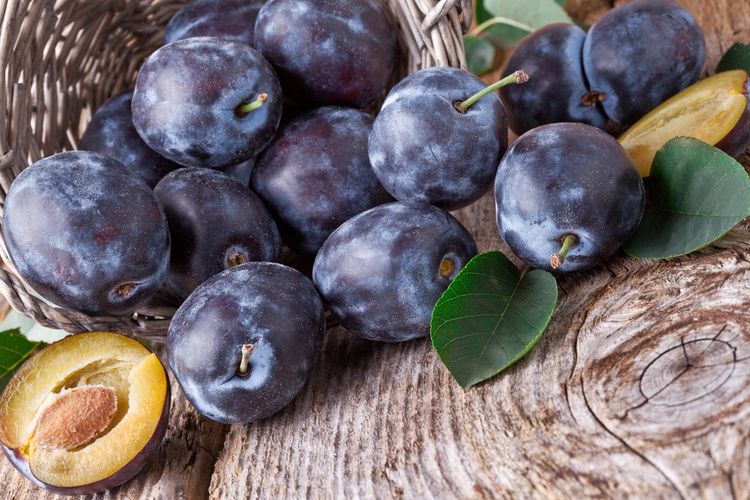Plums are sweet, juicy fruits that have been appreciated in many cultures for centuries. They are not only tasty, but also rich in various nutrients. But is this tasty fruit safe for your four-legged friend?
The complex world of prunes: a guide for dogs and their owners.
The plum is a stone fruit that belongs to the rose family. There are several varieties of plums, each with their own unique flavors, textures and nutritional profiles. Plums can be eaten fresh, but are also known as prunes when dried.
Nutritional and health profile of prunes.
Plums are not only delicious, but also nutritionally valuable. Some of the most notable nutrients include:
Vitamins:
- Vitamin A: Important for vision and immune function.
- B Vitamins: These support energy metabolism and are important for skin, hair and eyes.
- Vitamin C: A powerful antioxidant that also promotes skin health.
- Vitamin D: Known to support bone health.
- Vitamin E: Another powerful antioxidant.
Minerals:
- Calcium: Important for strong bones and teeth.
- Magnesium: Supports muscle function.
- Potassium: Regulates blood pressure and supports heart health.
- Phosphorus: Also supports bone and dental health.
Fiber: Prunes are a good source of fiber, which aids in digestion.
Health benefits of prunes
Thanks to their impressive nutrient profile, plums also offer a number of health benefits:
- Digestive support: the sorbitol and fiber found in prunes can prevent constipation.
- Immune system boost: The vitamins in prunes can strengthen the immune system.
- Antioxidant benefits: The antioxidants found in prunes may help neutralize free radicals and reduce oxidative stress.
Dogs and prunes: what you should know.
While plums offer many health benefits, there are also specific concerns about their consumption by dogs. But in short, yes, dogs can eat prunes - but please do so with caution and not excessively.

Other toxic hazards for dogs
Besides the toxic prune pits mentioned earlier, there are other things that can be toxic to dogs:
- Grapes and raisins: Even though they are not directly related to plums, it is important to know that grapes and raisins are toxic to dogs. They can cause kidney failure.
- Xylitol: a sugar substitute found in many sugar-free foods can be deadly to dogs.
- Chocolate: Theobromine, a substance found in chocolate, is toxic to dogs.
Recommendations for dogs and prunes
- Removal of pits: this is of utmost importance to avoid the risk of poisoning or constipation.
- Limited quantities: Feed your dog prunes only in moderate amounts.
- Beware of chemical sprays: Choose unsprayed or organically grown prunes.
Important tips for feeding plums to dogs.
When buying plums for your four-legged friend, look for premium quality. Ideally, these plums should be organic and pesticide-free. A ripe plum will give a little when pressed lightly. It is essential to choose ripe plums, as dogs can have difficulty with unripe fruit, which can cause stomach upset. An excess of plums can cause diarrhea in dogs. However, if your dog suffers from constipation, a small additional amount can be helpful.
Dried prunes are a possible alternative, but they contain a high amount of fructose. Therefore, you should only offer them in limited quantities.
Warning: Rotten plums can be dangerous! Eating fermented fruit can cause serious alcohol poisoning in dogs.
So is it safe to give prunes to dogs? Yes, prunes are safe and nutritionally valuable for dogs in moderate amounts. Make sure they are ripe, and be sure to remove the pits, as these contain toxic substances and can pose health risks.
Prunes are safe and healthy for human consumption, but care should be taken when feeding them to dogs. The above information should ensure that both you and your dog can enjoy the plum season safely.




















